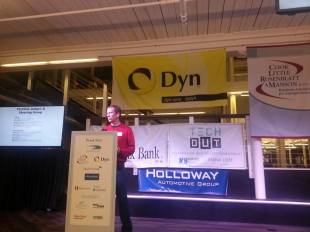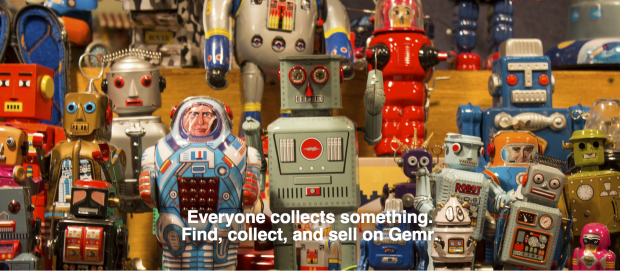 Last night, I had the pleasure of attending the New Hampshire High Tech Council’s third annual TechOut competition. I listened to five pitches and talked with several of the startups. One in particular made me think about where we are in social media in 2014 and how we’ve come full circle.
Last night, I had the pleasure of attending the New Hampshire High Tech Council’s third annual TechOut competition. I listened to five pitches and talked with several of the startups. One in particular made me think about where we are in social media in 2014 and how we’ve come full circle.
But first, what is TechOut? “TechOut is a startup competition that identifies talented, hungry tech entrepreneurs and funds them through investment capital awards of $100,000 a year. Held in the fall, TechOut is a fast-paced event that features live pitches by finalists, displays of their innovations, and networking opportunities with like-minded innovators, entrepreneurs and investors. All share a common goal – to enhance the tech ecosystem.”
The five startups were:
- UConnect helps college graduates better prepare to enter the workforce. They won the first place prize of $50,000.
- Gemr is an online community for collectors. Think online version of American Pickers. They took the second place prize of $30,000.
- ApplyKit is making college application less painful and better matching students to schools and won the third place prize of $20,000.
- SwitchNote lets college students find and and download study notes for courses.
- VidFall is a dutch auction-style site that lets you earn product discounts by watching promotional videos.
As you can see, there was a pretty heavy focus on the college experience. But the conversation that really made me think was Gemr.
Do We Really Need Another “Online Community?”
I’ve had countless conversations with colleagues, clients, and entrepreneurs who wanted to build an online community for this or that. My response has always been, “It already exists. It’s called Facebook. Or Twitter. Or LinkedIn.” In many of these cases, I’ve seen massive online communities self-organize in one or more of the existing social media platforms by using groups or other tactics. The friction is much lower and people are already spending a considerable amount of time on these networks.
If you want to create your own community, you’re going to have to convince people to spend less time on those networks and more time on yours. It’s difficult to do. So, my immediate reaction to Gemr’s pitch was a slight eye roll and a desire to provide my canned response: Do we really need another online community?
It Turns Out We Do
Before social media, it was difficult and expensive for people to organize. This is why we created clubs and associations. You joined the group and probably paid a membership fee and/or subscribed to their publication. This revenue supported the infrastructure that was necessary to connect everyone and provide mechanisms to share ideas and learn about whatever the subject was.
With the advent of Web 2.0 and social media, this process is basically trivial now. You can start a Facebook or LinkedIn group, host a Twitter chat, or even whip up a free, do-it yourself website on WordPress. It became cheap and simple to instantly organize hundreds, thousands, or even millions of people around a topic or common interest.
So why does Gemr have a compelling story?
Well, I think social media has come full circle. Before Web 2.0, those organizations were typically what I would describe as an inch wide and a mile deep. Because of the expense involved, they needed to be tightly focused in their mission. Then along came social media, which allowed people to organize in a way that’s an inch deep and a mile wide. Much of the interaction was superficial but incredibly scalable and diversified.
Gemr explained to me how collectors today are jumping from one social network to another, and no single one is serving their needs well. They can communicate and share via Facebook. They can dream and covet on Pinterest. They can purchase from eBay. But they can’t do everything in one place. That’s why I think Gemr is on to something and why it occurred to me that social media has come full circle.
There is still a need for groups to engage in a way that’s an inch wide and a mile deep. Expectations are sufficiently high and technology is sufficiently advanced to warrant this next evolution of the web; deep communities. I think that Gemr is leading an interesting movement and it’s going to be fun to watch this unfold.
